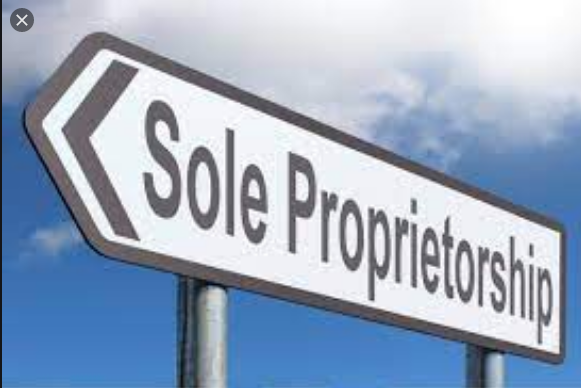Sole Proprietorship is one of the oldest forms of business known to man. It is also the most common type of business structure you can find around, and examples include, a photographer grocer, restaurant, a chemist, a private clinic run by one doctor and so much more.
Sole Proprietorship?
Simply put, a sole proprietorship is a one-man business organization. A sole proprietor is fully in charge of managing his business, and he is a natural person and not a legal entity.
A sole proprietor and his business are one, what this means, is that it does not have a separate legal entity and usually does not have to be incorporated or registered. This form of business is still the simplest form of business structure and the best choice to run a small business or medium scale business.
Understanding Sole Proprietorship
Sole Proprietorship is quite different from corporations and limited partnerships because no separate legal entity is created. This means the business owner of a sole proprietorship is not excluded from liabilities incurred by the business.
Using a Real Name
If a sole proprietor uses his real name as the business name, the proprietor will not have to file any paperwork. Howbeit, if the proprietor decides to name the business using another name, then there may need to file papers to indicate that you are doing business As…., which is also known as DBA form.
Tax
Since you are a business, any revenue you earn from your business is considered personal income, which you pay personal taxes on. Even though you won’t have additional business taxes, you will have to pay self-employment taxes and estimated taxes, depending on what you earned the previous quarter.
Features of Sole Proprietorship
One Identity
A sole proprietor in legal terms is one and the same. This means, the business and the owners are one and the same and no separate legal identity is placed upon the sole proprietorship. Thus the owner is solely responsible for all the activities as well as transactions carried out by the business.
Profit &Risk
As a sole proprietor, you bear all the risks of the business since all the financial investment in the company is only made by you. Also, you bear all the profit and loss of the business.
When profits come into the business, the sole proprietor enjoys all the profit alone and does not have to share it with anyone.
No Legal Formalities
There is no separate law governing a sole proprietor, which means there are no many special rules and regulations to follow. The business does not need Incorporation or registration to go through. In most cases, all that it needs is only a license to carry out its business activities.
If the business decides to close up, there is hardly no legal process required for it to close down.
Continuity
Since the sole proprietorship business is owned and run by one person, this may have an effect on the continuity of the business in the event of death, retirement, bankruptcy, insanity, imprisonment, etc. When this happens, the proprietorship ceases to exist and business grounds to a halt.
Liability
The owner and the businesses are one and the same, thus the personal liability of the owner is also unlimited. In this case, if the business cannot handle its own debts or liabilities, it falls on the proprietor to pay them.
Benefits of Sole Proprietorship
- As the business owner, you get the maximum incentive from the business as you do not have to share any of your profits.
- You are your own boss and answerable only to yourself, which gives you a great sense of satisfaction and achievement.
- As a sole proprietor you are in charge of your business and can make quick decisions and have the freedom to do business.
- Since the law does not require a proprietorship to publish its financial accounts or any other such documents to any member of the public, there is enough confidentiality which you need for your business.
Demerits of Sole Proprietorship
- Anything that affects the sole proprietor affects the business which makes the future of the business uncertain since the business cannot exist without the owner.
- A sole proprietorship business may suffer from mismanagement and poor decisions, since the proprietor may not have the required resources needed to hire competent people to help him out.
- There is unlimited personal liability of the owner in a sole proprietorship. Thus if the business fails, it can completely wipe out the personal wealth of the owner and also affect the future of the business prospects.
- A sole proprietor has limited access to capital, thus money borrowed from his own personal savings may not suffice in the expansion of the business. A sole proprietor may not also be able to get a loan from banks and financial institutions, as they are careful not to lend to sole proprietorship business.


